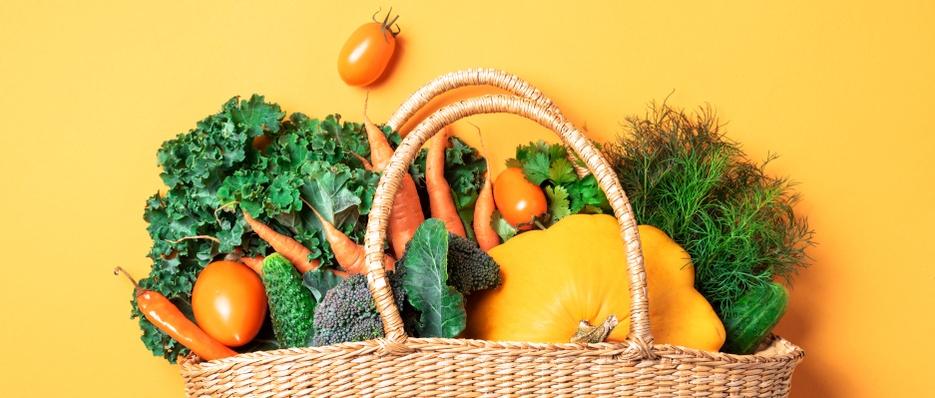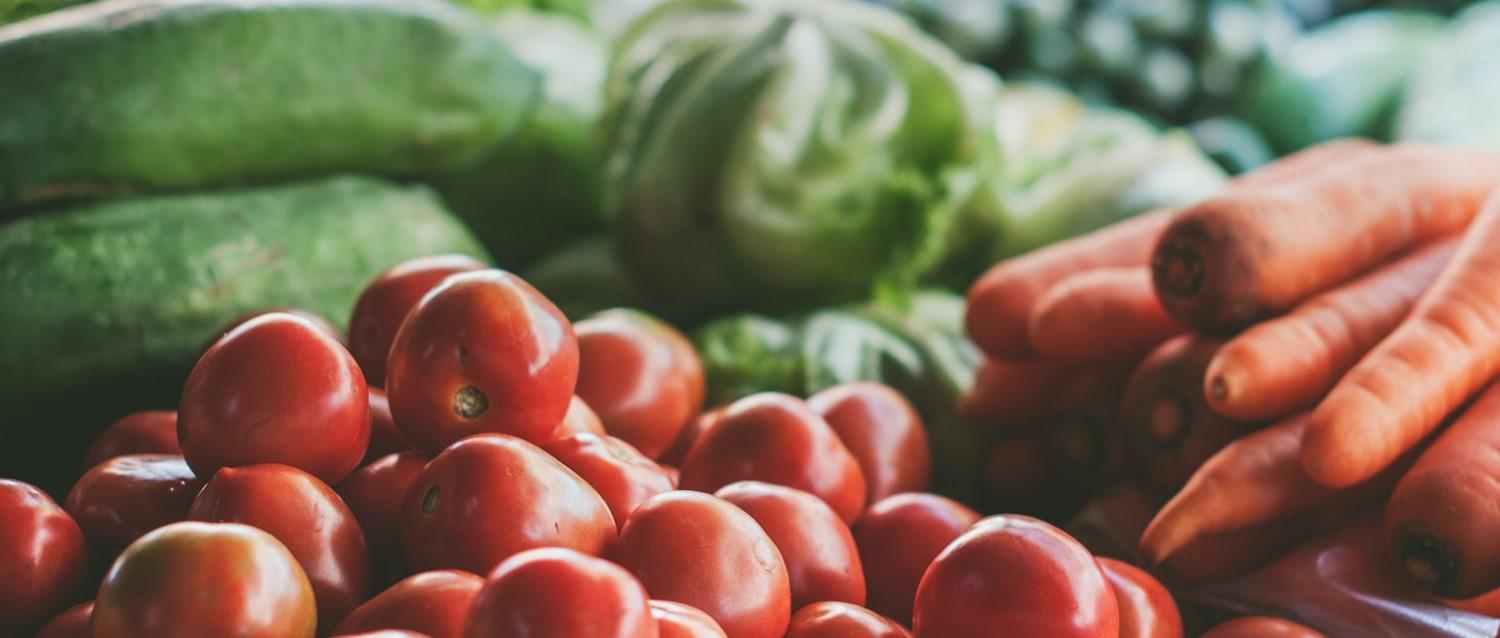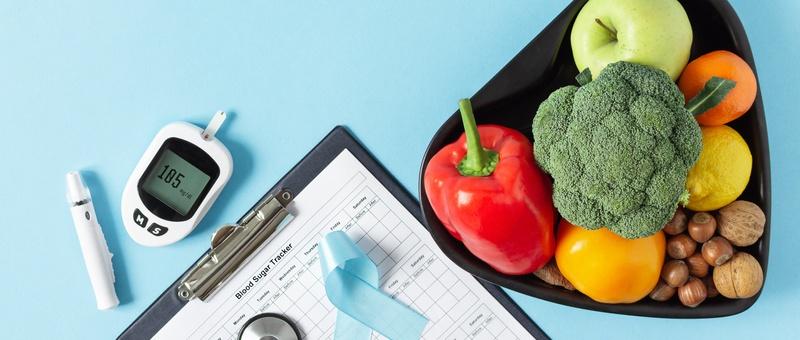
Diabetes diet: managing type 2 diabetes
Peer reviewed by Dr Colin Tidy, MRCGPLast updated by Lawrence HigginsLast updated 27 Nov 2025
Meets Patient’s editorial guidelines
- DownloadDownload
- Share
- Language
- Discussion
If you have type 2 diabetes it is often difficult to know which foods you should or should not eat. Here we explain the key elements of a diabetes diet to help you prevent or delay associated health problems, and address some common myths around eating with type 2 diabetes.
Sign up for our free 10-week Diabetes course!
Each week, we'll explore a different topic to help you better understand and manage your diabetes, including everyday living and medicines, to mental wellbeing, the latest in diabetes tech, and nutrition.
By subscribing you accept our Privacy Policy. You can unsubscribe at any time. We never sell your data.
In this article:
Is there a special diet for type 2 diabetes?
There is no specific diet to follow if you have type 2 diabetes (TD2). It's more about eating regular healthy and balanced meals, in the right amounts, from all the main food groups.
Fruits and vegetables
Back to contentsFruit and veg can be enjoyed fresh, frozen or tinned in natural juices. Try to include different colours and varieties. Fruits and vegetables are full of vitamins, naturally high in fibre, low in fat and useful for helping weight loss. As fruits are higher in natural sugars, it is best to eat them with something that is high in good fats like Greek yoghurt to slow the surge in sugar in your blood stream. This sugar content means it is also better to eat more vegetables than fruit.
Eating at least five portions per day - aiming for 3 veg and 2 fruit options - can help to reduce your risk of heart disease, and certain cancers. And they taste delicious - so try putting more fruit and veg into your meals or having them as a healthy snack in between?
In general, sticking to a plant-based diet has been found to help lower risk of T2D.
Continue reading below
Starchy foods
Back to contentsStarchy foods - such as potatoes, bread, rice, pasta, and other grains - are broken down into simple sugars in the body. They tend to be the body's main fuel source. On average, we get around one half of our total daily calories from this group.
If you have T2D, a low-carbohydrate diet - between 50 g-130 g a day - can help control spikes in your blood sugar or help with weight loss. You can be supported by your healthcare professional if this is something you're interested in trying.
A low-carb diet is a key part of putting T2D into remission - when blood sugar is in the normal range - without using medicine.
Importantly, not all starchy foods are broken down in the body the same way. Some foods - particularly 'refined' carbohydrates - are broken down very quickly, resulting in sharp increases in blood sugar. This is not ideal if you have T2D, as it can leave you feeling unwell or sluggish in the short term and lead to complications in the long term if blood sugars are consistently high.
Eating wholegrain carbohydrates - like seeded bread, whole oats, and brown rice - ideally combined with some protein, helps to avoid sharp increases in blood sugar.
The glycaemic index (GI) is a ranking system that determines how slowly a food is broken down in the body. Foods with lower GI numbers release more slowly into the bloodstream. Any changes to your carbohydrate intake should be used in combination with healthy eating.
Protein foods
Protein foods include lean meats, eggs, fish, beans, and pulses.
Protein requirements are the same whether you have diabetes or not. However, if you have type 2 diabetes, you're at higher risk of heart disease. It's therefore advisable to choose lean proteins and prepare food in a way that avoids using lots of fat - like grilling or roasting.
Aim to include 1-2 portions of oily fish - such as salmon, fresh tuna, and sardines - in your diet each week, as they help your heart health.
Plant-based sources of protein, such as beans and pulses - like chickpeas, kidney beans, lentils - are full of a type of fibre that helps to lower blood sugars and cholesterol. This means they can play an important role in helping to manage diabetes.
Dairy and alternatives
Dairy and alternatives - such as milk, yoghurts and cheese - are our main source of calcium and should be included in your daily diet.
It is advisable to opt for full-fat options as they are less processed, or reduce portion sizes. Natural Greek yoghurt sweetened with fruit is an ideal snack or dessert choice.
Fats and oils
For example, cooking oils, margarines, and butters.
Our bodies need fat, but it needs to be the right type of fat and in small quantities. We rely on our diet for fat-soluble vitamins A, D, E and K, and essential fatty acids.
If you have T2D you should all try to minimise your fat intake. When you do eat fatty foods, swap saturated fat for unsaturated where possible.
Choose healthier fats - such as olive, rapeseed, and sunflower-based oils - which heart healthy (cardioprotective) as opposed to ones high in saturated fats such as lard, ghee, butter, or coconut and palm oil.
Salt and alcohol
It's also important to reduce your intake of salt - choose lower-salt alternatives where possible and consider using spices and herbs to flavour your food naturally.
Keeping an eye on your alcohol intake is important to maintain a healthy lifestyle. Adults are advised not to drink more than 14 units of alcohol each week. You should spread your intake across several days with alcohol-free days in between. If you're pregnant, you should avoid drinking any alcohol.
Do I need to lose weight?
Back to contentsCarrying extra weight plays an important role in the development of T2D.
If you are overweight and have T2D, losing 5-10% of your body weight and maintaining that weight loss can help to manage your diabetes better and reduce your risk of long-term complications.
Research by Diabetes UK shows losing up to 15 kg can put your diabetes into remission.
Continue reading below
Frequently asked questions
Back to contentsDo I have to choose special diabetes diet foods?
No. There is no evidence to suggest such foods offer any benefit over regular healthy eating.
Am I allowed to eat sweet fruits like bananas, grapes, or mango?
Yes - all fruits are allowed. While fruits do contain natural sugars, these are processed differently in your body to refined sugars. Grapes are very high in sugar, whilst you can still eat them, portions should be smaller.
It's best to avoid eating too much, but fruits can be a great snack especially if they are replacing high-fat and sugary foods like cakes and biscuits.
Fruit juices, fruit smoothies, and dried fruit have higher sugar concentrations and should be consumed in moderation.
Can I have red meat?
Eating high amounts of red meats - in particular processed type meats, such as sausages, bacon, burgers, hot dogs - can increase the risk of certain cancers.
Lean red meat is a good source of protein, iron, zinc, and B12 - so eat it sensibly, not too much or too often. You should eat no more than 70 g of red meat a day - around 5 tablespoons of cooked mince or a small burger.
Do I have to give up sugar forever?
You do not need to cut out all sugar but it is advisable to cut down on refined sugars, foods with added sugars, and highly sweetened foods like soft drinks, chocolate, cakes, and biscuits, especially if your current intake is high.
With or without diabetes, we should all be eating less refined sugars which can contribute to weight gain and obesity, heart disease and dental issues.
Patient picks for Type 2 diabetes

Diabetes
Type 2 diabetes diet
The first-line treatment for type 2 diabetes involves making changes to your lifestyle, through diet, weight control and physical activity.
by Dr Colin Tidy, MRCGP

Diabetes
What you should know about diabetes burnout
Managing diabetes is a full-time job. It involves a continuous cycle of blood sugar monitoring, medicine management, and proactive planning. Like many challenges in life, the constant need to monitor this health condition can lead to burnout if you don't take steps to recognise, address, and prevent it. This World Diabetes Day, we highlight the importance of self-care, support, and finding the right resources if you’re living with diabetes.
by Victoria Raw
Article history
The information on this page is peer reviewed by qualified clinicians.
Next review due: 7 Nov 2028
27 Nov 2025 | Latest version
21 Apr 2021 | Originally published
Authored by:
Sarika Mongia, RD

Ask, share, connect.
Browse discussions, ask questions, and share experiences across hundreds of health topics.

Feeling unwell?
Assess your symptoms online for free
Sign up to the Patient newsletter
Your weekly dose of clear, trustworthy health advice - written to help you feel informed, confident and in control.
By subscribing you accept our Privacy Policy. You can unsubscribe at any time. We never sell your data.